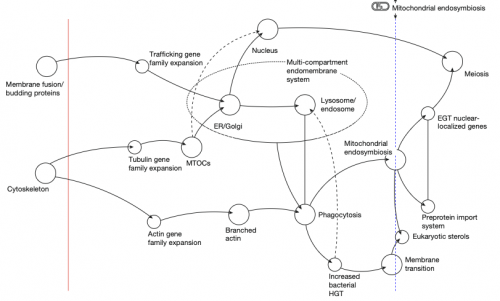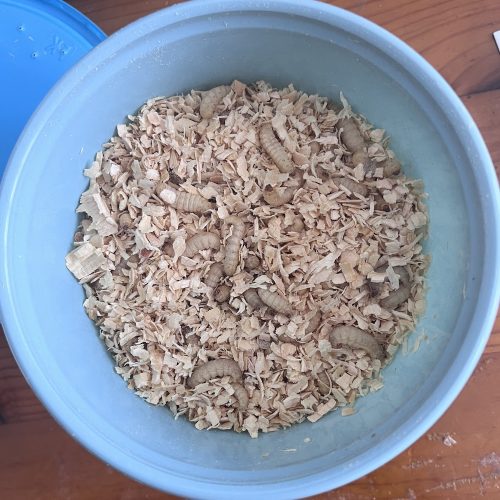Last night, I was going to clean up a junk drawer in my office — you know, one of those places where you toss all the odds and ends you don’t quite know what to do with, and over a decade or two they accumulate a terrifying quantity of doodads and knick-knacks and geegaws that need to eventually be sorted. This is a perilous job because the drawer is stuffed with distractions, making it nearly impossible to make any progress in cleaning it up.
This time was no exception. First thing I found was a sheet of 35mm color slides, taken in 1988. Slides are annoying, I don’t know why I was shooting in that format, because the image is so small that you can’t really see anything that well, unless you have a slide projector and screen. I do not.
But the second thing I found was an old cheap slide scanner (I tell you, this drawer is full of strange things from an enchanted universe.) It wasn’t a great little gadget. I bought it once upon a time for cheap thinking I’d be able to get rid of those stupid 35mm slides, but it didn’t produce great output, so I gave up on that project and hurled it into the void of my junk drawer.
So. I’m standing there with a bunch of old slides and a slide scanner while I was trying to defeat that cluttered void. You know what happened next…I had to sit down and start feeding slides into the scanner to see what I had.
I was sucked back into 1988, when I had finished up grad school, was transitioning into a post doc in Salt Lake City, and all my beloved relatives were still alive. These slides were shot on a vacation to my parents’ home, while I was oblivious to what I was going to lose in a few short years.
This was my uncle Ed.
Ed was a bachelor who was full of stories. He was an MP in Germany at the end of WWII, which involved far less gunfire and far more shuttling around the country on trains. He then signed up for the merchant marine, and sailed around the south Pacific, collecting tattoos and bad habits. When he finally settled down with our grandmother, he was incapable of holding down a job, went on frequent benders, and threw away most of his money at the racetrack. Our parents warned us that he was a bad influence, and my father in particular was sometimes furious with him for his wastrel life style, especially when he showed up falling down drunk at our house.
But his nephews and nieces loved him (and so did my dad, actually), and he loved us back. He was the uncle who would take us to the drug store to buy comic books, or to the cheesy awful horror movies that our parents had no interest in wasting their money on. On weekends we’d spend the night at Grandma’s house with Ed, and we’d stay up late sprawled on the floor, reading comic books and watching Batman or The Avengers until the late night horror host would fire up some delightful Godzilla flick or something with Bela Lugosi or an unnaturally large creature, while Ed would fall asleep on the sofa. I can’t watch a Hammer film without once again hearing Ed snoring in the background.
And now he’s long gone.
This is my maternal grandmother, with my boys, Connlann and Alaric.
Grandma did not have a particularly happy life. She was trapped in, I think, a loveless marriage with my grandfather, who was a dysfunctional alcoholic who spent his days slurping down cheap beer and puffing constantly on cheap cigars. The cigars eventually killed him, giving him a bone cancer that required removal of his jaw, and grandma stood by him and tended him through an agonizing ‘recovery’ in which he was going through the screaming DTs and chemo. She was good to me while I was growing up, and I felt so sorry for what she was going through.
She lived for her grandchildren and great grandchildren. We should have visited her much more often, because as you can see even in this terrible photo, she lit up when the kids came to visit. We’d all go out for a treat — either to Arby’s for roast beef sandwiches, or to Dairy Queen for soft serve ice cream. She had a lot of great grandchildren, so I hope she got lots of visits and attention. We lived so far away it was rare for us to get up to Kent, Washington, but we always made a point to drop in with a couple of kids to cheer her up.
Grandpa did not survive the cancer, and Grandma is also gone now.
The junk drawer is not empty, not anywhere near it. I think it’s mostly cables and obsolete computer gear, but I fear that it has acquired a survival instinct and knows to bubble some terrifying nostalgia to the top if ever I should try to remove its contents. That’s how it has survived as long as it has.












